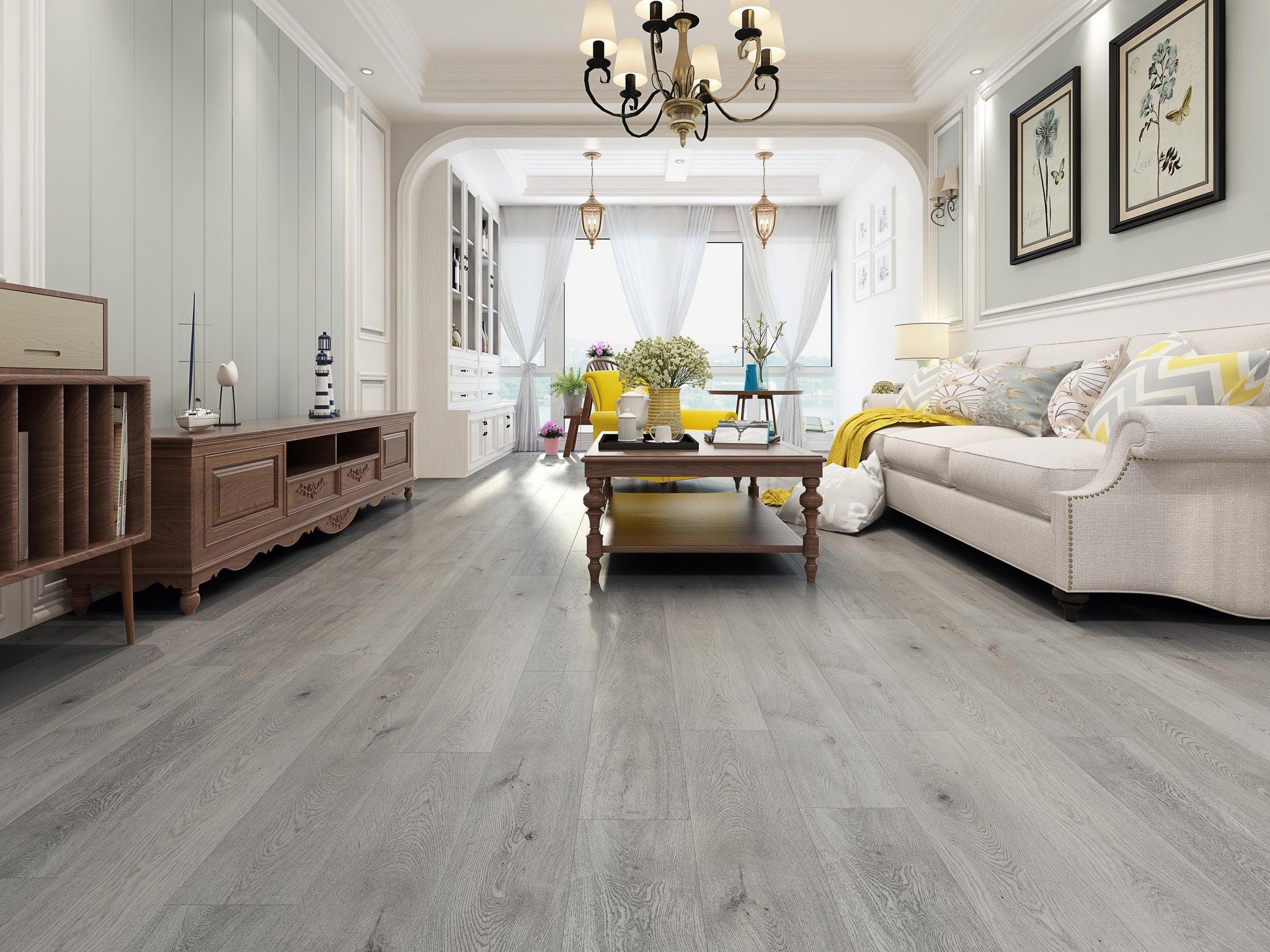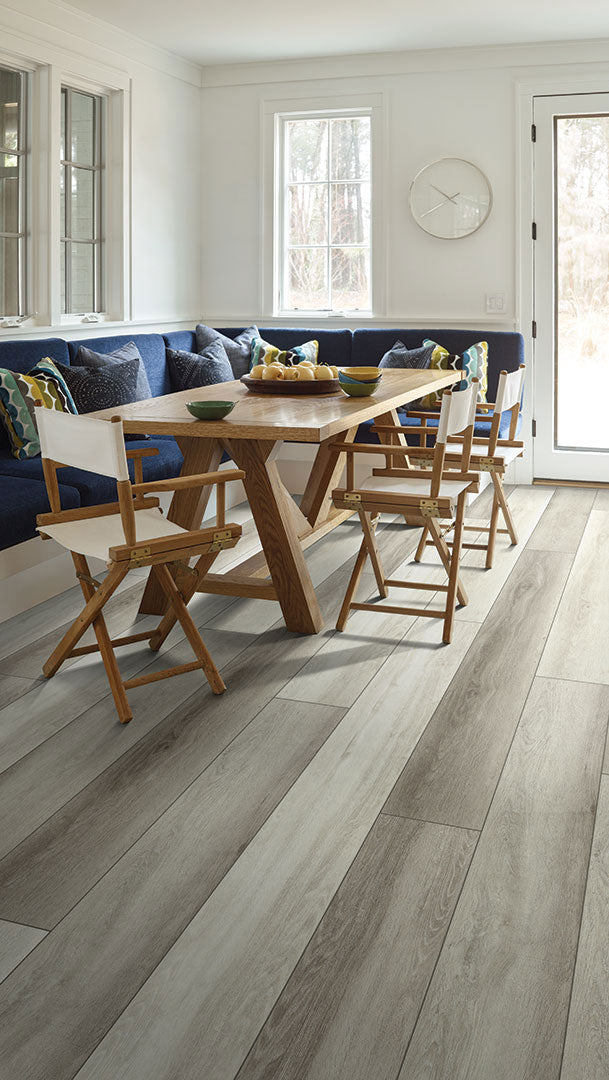When it comes to redoing your kitchen floors, there’s a wide variety of options to choose from. You want one that’s durable but also pleasing to the eye. Vinyl flooring has become an increasingly popular floor choice for the kitchen for many reasons. But, like with any flooring material, there are pros and cons to be considered before moving forward, and we have them to help you out.

Pros of Vinyl Flooring in Your Kitchen
Durable and Long-Lasting: Vinyl is considered to be a highly durable flooring material, which makes it a great choice for kitchen flooring. It can take almost anything a normal to a chaotic household life can deliver. And if you normally take care of it, which is very simple and another advantage we’ll get into, it will last you between 10 to 20 years.
You are watching: Pros and Cons of Vinyl Flooring in Your Kitchen
Water and Stain Resistant: One of the biggest draws of vinyl flooring for the kitchen is not just the durability, but its resistance to water and stains. These elements alone make vinyl an ideal flooring choice for highly active kitchens that have lots of spills from cooking and leaks from the dishwasher or refrigerator.
Read more : Best Primers for Cabinets + Mistakes to Avoid While Painting
Affordability: One of the most inexpensive flooring options on the market, vinyl can approximate the look of pricier materials at a fraction of the cost. And like we mentioned before, it’s a snap to clean, easy to patch if a spot gets damaged, and comfortable underfoot.
Easy to Clean and Maintain: As we mentioned before, vinyl flooring is easy to keep clean. Because it’s water resistant, you don’t need to worry about using water so, a simple mop or steam mop will do the trick. Also, vacuum the floor with a vacuum that’s intended for hard surfaces for light touch ups.
Comfort: When in the kitchen, we’re usually standing on our feet for long periods of time while cooking delicious meals. So, it’s ideal to have a soft flooring to make it more comfortable to stand on, which is exactly what vinyl flooring is. Additionally, because of the soft surface, objects are less likely to break when dropped, which is good news for your glasses and mugs.
Design Options: Vinyl wasn’t considered chic for a long time. But that’s changed. Nowadays, it comes in a sophisticated range of designs and finishes. It’s available in sheets or tiles that mimic stone, wood, ceramic tile, and most embossed with textures that look and feel surprisingly realistic.

Cons of Kitchen Vinyl
Read more : How Long Does a Kitchen Remodel Take?
While vinyl flooring is low maintenance and highly durable, as with any material, there are a couple of cons to be aware of.
Not Damage Resistant: While vinyl is incredibly durable, it’s not impervious to damage. If sharp objects fall, like knives, they could leave dents, punctures or scars.
Not Environmentally Friendly: Vinyl flooring is not biodegradable and doesn’t break down naturally into the environment. It’s also difficult to recycle, which means that old vinyl floors often end up in landfills.
Now that you know all the pros and cons of vinyl flooring, you can now successfully make the decision of if it’s the right flooring for your kitchen, which, in our opinion, it definitely is!
Source: https://gardencourte.com
Categories: Kitchens

